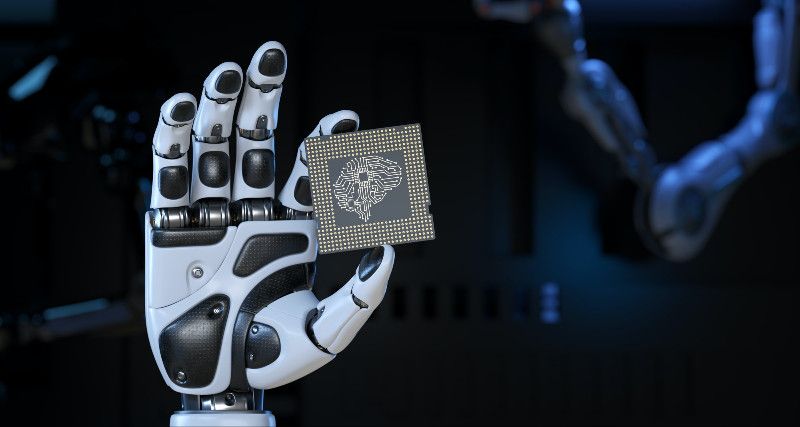Welcome to the fascinating world of Black Box AI, where technology performs wonders that can seem almost like magic! Black Box AI is a type of artificial intelligence that’s incredibly smart, but even the brightest minds often can’t explain exactly how it works. Imagine having a robot that can solve complex puzzles, but it won’t tell you its secret. That’s what dealing with Black Box AI can feel like. It’s everywhere around us, from the phones in our hands to self-driving cars on the streets.
In this blog, we’re going to explore Black Box AI and its impact in various fields such as marketing, computer vision, and the work of developers and data scientists. We’ll also discuss the legal aspects of this technology. Don’t worry if some of these terms sound technical; we’ll break them down in simple language. So, let’s dive in and unravel the mysteries of Black Box AI!
Marketing
In the realm of marketing, Black Box AI acts like a wizard behind the curtain, predicting what customers might want to buy next. Marketers use this technology to analyze vast amounts of data, like what people click on, their shopping habits, and preferences. This helps businesses create personalized ads and recommendations, making sure you see the stuff you’re most likely to be interested in.
But, Black Box AI isn’t perfect. Sometimes it might suggest things that don’t make sense to you. That’s because it works based on patterns in data, and sometimes these patterns can be misleading or incomplete. For marketers, the challenge is to use Black Box AI effectively, ensuring that it enhances the shopping experience without invading privacy or becoming annoying.
Developers and Data Scientists
For developers and data scientists, Black Box AI is like a complex puzzle they constantly try to understand and improve. These professionals use their skills to design and train AI systems, feeding them with data and teaching them how to respond. Their aim is to make AI smarter and more efficient, helping it to solve complex problems or make accurate predictions.
However, these experts often face challenges with Black Box AI. The AI’s decision-making process can be unclear, making it hard for them to explain or predict how it will behave in different situations. It’s like training a talented athlete without knowing exactly how they pull off their amazing feats. This can make troubleshooting and perfecting AI systems quite challenging.
Computer Vision
Computer vision is an area where Black Box AI really shines. This technology enables computers and machines to ‘see’ and interpret the world. For example, it helps self-driving cars recognize objects on the road, or allows your phone to identify faces in photos. Computer vision AI can process visual information far quicker and more accurately than a human.
But the magic of Black Box AI in computer vision isn’t flawless. Sometimes, it might misinterpret an image or struggle to recognize objects in different lighting conditions. These errors occur because, despite its advanced capabilities, the AI is still learning and depends heavily on the data and scenarios it has been trained on.
Myths vs. Facts
Myth: Black Box AI Knows Everything
Fact: Black Box AI is limited by the data it’s trained on and the algorithms it uses. It doesn’t have universal knowledge or understanding.
Myth: Black Box AI is Always Accurate
Fact: Black Box AI can make mistakes, especially if the data it was trained on isn’t accurate or diverse enough.
Myth: We Can’t Understand How Black Box AI Works
Fact: While it’s challenging, researchers and tech professionals are continually developing methods to make the workings of Black Box AI more understandable and transparent.
FAQ
What is Black Box AI? Black Box AI is a type of artificial intelligence where the exact way it processes data and makes decisions isn’t clear or visible to us. It’s like a chef who makes a delicious meal but doesn’t share the recipe.
Why is Black Box AI used in marketing? Marketers use Black Box AI to analyze customer data and predict buying behaviors. This helps them create personalized marketing strategies that are more likely to appeal to their target audience.
What do developers and data scientists do with Black Box AI? Developers and data scientists design, train, and manage Black Box AI systems. They work to improve the AI’s performance and try to make its decision-making process clearer.
How does Black Box AI impact computer vision? Black Box AI significantly enhances computer vision, enabling machines to recognize and interpret visual data with high accuracy and speed. However, it’s not always perfect and can sometimes misinterpret images.
What are the legal concerns with Black Box AI? The legal concerns with Black Box AI include issues of accountability and transparency. If an AI system makes a wrong decision, it can be hard to determine why it happened and who is responsible.
Google Snippets
Black Box AI: “Black Box AI refers to AI systems where the decision-making process is not transparent, making it hard to understand how conclusions are drawn.”
AI in Marketing: “AI in marketing is used for customer data analysis, personalized advertising, and improving overall user engagement.”
Computer Vision AI: “Computer Vision AI involves machines interpreting visual data from their environment, enhancing automation and decision-making.”
Black Box AI Meaning
From a Tech Blog: “Black Box AI is a term for AI systems where the internal mechanism of decision-making is not disclosed or easily understood.”
In a Data Scientist’s Words: “Black Box AI involves complex algorithms where the reasoning behind specific decisions or predictions is obscured.”
Simplified Definition: “Black Box AI is like a smart robot that gives answers without explaining how it figured them out.”
Did You Know?
- The term “Black Box” in aviation refers to a device that records flight data in a way that’s not immediately understandable, similar to Black Box AI.
- Black Box AI can process and analyze more information in a day than a human can in a lifetime, but understanding the ‘how’ and ‘why’ behind its decisions remains a challenge.
In conclusion, Black Box AI is a revolutionary yet complex aspect of modern technology. Its applications in marketing, computer vision, and the work of developers and data scientists show its vast potential. However, the challenges in understanding how it makes decisions and the legal implications of its use remind us that this technology still has a long way to go. As we continue to explore and develop Black Box AI, it’s essential to strive for transparency and accountability, ensuring it benefits society as a whole.


Unveil The Black Box AI: A Comprehensive Guide for Young Learners
References
- Explainable AI that uses counterfactual paths generated by conditional permutations of features. This method is used to measure feature importance by identifying sequential permutations of features that significantly alter the model’s output. The paper discusses the evaluation strategy of comparing the feature importance scores computed by explainers with the model-intern Gini impurity scores generated by the random forest, which is considered as ground truth in the study.
- Thinkful offers insights on how to address the “black box” problem in AI through Explainable AI (XAI) and transparency models. They discuss techniques like Feature Importance Analysis, Local Interpretable Model-agnostic Explanations (LIME), SHapley Additive exPlanations (SHAP), Model Distillation, and Decision Rules, which are designed to make AI models more interpretable and transparent. This is especially important in applications where decisions can have far-reaching consequences, such as healthcare or finance




